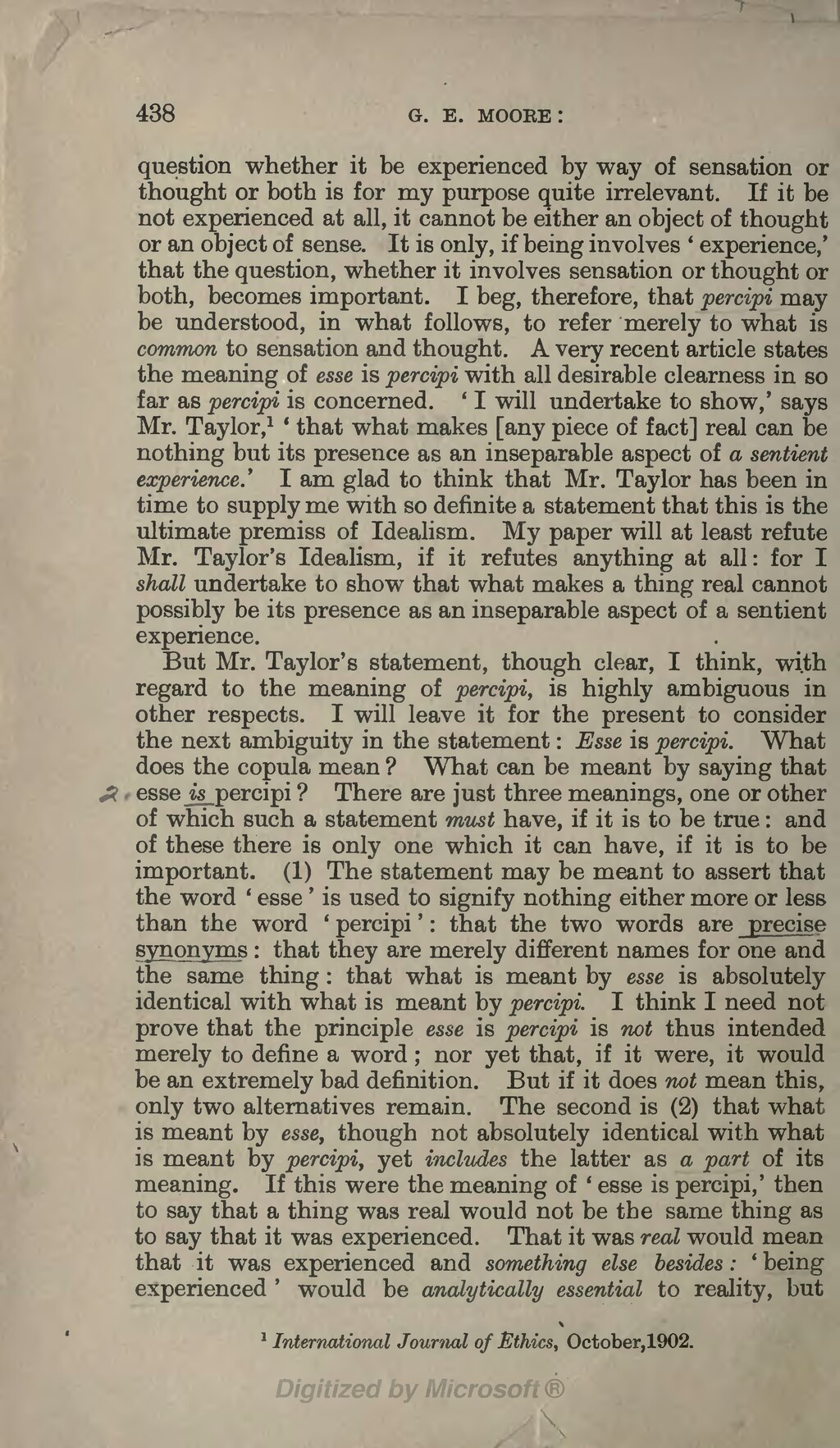question whether it be experienced by way of sensation or thought or both is for my purpose quite irrelevant. If it be not experienced at all, it cannot be either an object of thought or an object of sense. It is only, if being involves ‘experience,’ that the question, whether it involves sensation or thought or both, becomes important. I beg, therefore, that percipi may be understood, in what follows, to refer merely to what is common to sensation and thought. A very recent article states the meaning of esse is percipi with all desirable clearness in so far as percipi is concerned. ‘I will undertake to show,’ says Mr. Taylor,[1] ‘that what makes [any piece of fact] real can be nothing but its presence as an inseparable aspect of a sentient experience.’ I am glad to think that Mr. Taylor has been in time to supply me with so definite a statement that this is the ultimate premiss of Idealism. My paper will at least refute Mr. Taylor’s Idealism, if it refutes anything at all: for I shall undertake to show that what makes a thing real cannot possibly be its presence as an inseparable aspect of a sentient experience.
But Mr. Taylor’s statement, though clear, I think, with regard to the meaning of percipi, is highly ambiguous in other respects. I will leave it for the present to consider the next ambiguity in the statement: Esse is percipi. What does the copula mean? What can be meant by saying that esse is percipi? There are just three meanings, one or other of which such a statement must have, if it is to be true: and of these there is only one which it can have, if it is to be important. (1) The statement may be meant to assert that the word ‘esse’ is used to signify nothing either more or less than the word ‘percipi’: that the two words are precise synonyms: that they are merely different names for one and the same thing: that what is meant by esse is absolutely identical with what is meant by percipi. I think I need not prove that the principle esse is percipi is not thus intended merely to define a word; nor yet that, if it were, it would be an extremely bad definition. But if it does not mean this, only two alternatives remain. The second is (2) that what is meant by esse, though not absolutely identical with what is meant by percipi, yet includes the latter as a part of its meaning. If this were the meaning of ‘esse is percipi,’ then to say that a thing was real would not be the same thing as to say that it was experienced. That it was real would mean that it was experienced and something else besides: ‘being experienced’ would be analytically essential to reality, but
- ↑ International Journal of Ethics, October, 1902.
